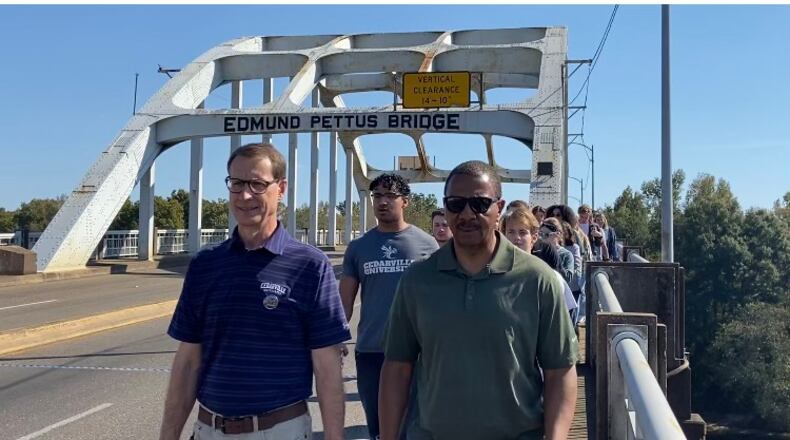“Our course is important for Christians because the church in America has not always reflected what it is meant to. We are called to be reconciled to people who are not like us, and that only comes through Jesus Christ,” said Robert Clark, assistant professor of history and co-professor with Patrick Oliver, associate professor of criminal justice.
The new Civil Rights in America: Tour class is designed to provide students with eight weeks of regular classroom lectures, assessments and assignments, along with the five-day bus tour.
“The bus tour has always been thought-provoking, and we often hear students talk about the emotional impact after the fact,” Clark said. “By offering the eight-week course with the bus tour, students gain a better understanding of what transpired and how Americans were mistreated.”
During the course, Clark and Oliver teach from “The Movement” by Thomas C. Holt and “One Race, One Blood” by Ken Ham and Charles Ware; students interact with the material, engage in discussions and write in a journal. The tour then brings that material into focus.
“The purpose of the course is not to tell students what to think about practicing cultural competency, it is to help them discern what they believe and to articulate the evidence that supports their view,” Oliver said. “There’s been oppression in the United States, and it’s important to take an honest view of history and help students better understand civil rights history from a biblical worldview, and how it impacts race relations today.”
Senior Grace Gregory, an early education major from Downers Grove, Ill., was a member of the first class, saying it was “transformational.”
“I am mixed race, but never felt like I knew that much about African-American history. Having both the history in the classroom setting and the visual impact of seeing where the civil rights movement took place completely changed my understanding,” she said.
Gregory said one of the most impactful moments of the tour was visiting the 16th Street Church in Birmingham where four young girls died in a Ku Klux Klan bombing in 1963.
The tour was originally led by Murray Murdoch, distinguished professor of history who recently retired, but has since been revamped and turned into a course that can be substituted for general education social science requirements.
“Every student at Cedarville University, regardless of their major, will benefit professionally by being more culturally competent,” Oliver said. “To understand the current state of civil rights in America, one must know the history of civil rights in the United States, which has always been the focus of Cedarville’s civil rights initiative.”
About the Author

